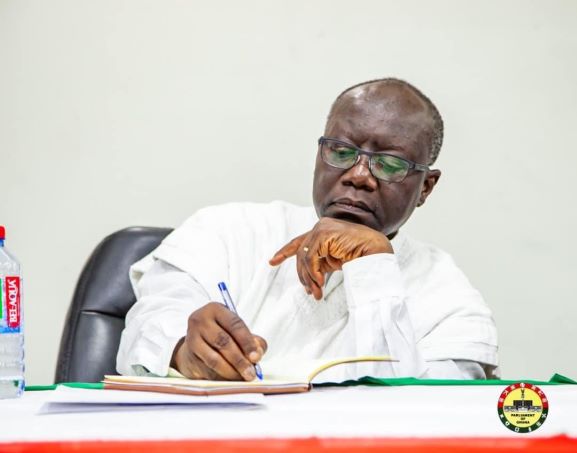Treasury Bills are completely exempted from the debt exchange and all holders will be paid the full value of their investments on maturity
No haircut on the principal of bonds
In addition, there will be no haircut on the principal of bonds while individual holders of bonds will not be affected.
Domestic Debt Exchange to be launched today
Finance Minister Ken Ofori-Atta announced this as a prelude to Domestic Debt Exchange to be launched on Monday, December 5, 2022 to be followed by external debt restructuring parameters which will be presented in due course.
Domestic bondholders to exchange for new ones
He explained that under the programme, domestic bondholders will be asked to exchange their instruments for new ones.
New bonds maturing in 2027, 2029, 2032 and 2037
According to him, existing domestic bonds as of December 1, 2022 will be exchanged for a set of four new bonds maturing in 2027, 2029, 2032 and 2037.
Coupons: 2023-0%, 2024-5%, 2025-10% until maturity, semi-annual payments
He announced that the annual coupon on all of these new bonds will be set at 0% in 2023, 5% in 2024 and 10% from 2025 until maturity and coupon payments will be semi-annual.
Restoring macroeconomic stability
Ofori-Atta said government’s commitment to Ghanaians and the investor community, in line with negotiations with the International Monetary Fund (IMF), is to restore macroeconomic stability in the shortest possible time and enable investors to realize the benefits of the Debt Exchange.
He noted that government has been working hard to minimize the impact of the domestic debt exchange on investors holding government bonds, particularly small investors, individuals, and other vulnerable groups.
He stated that government recognizes that the financial institutions hold a substantial proportion of these bonds.
As such, he said the potential impact of the debt exchange on the financial sector has been assessed by their respective regulators.
Measures and safeguards to minimize potential impact financial sector
Working together, Ofori-Atta said the regulators have put in place appropriate measures and safeguards to minimize the potential impact on the financial sector and to ensure that financial stability is preserved.
Role of regulators
He stated that the Bank of Ghana (BoG), Securities and Exchange Commission (SEC), the National Insurance Commission (NIC), and the National Pensions Regulatory Authority (NPRA) will ensure that the impact of the debt operation on financial institution is minimized, using all regulatory tools available to them.
Financial Stability Fund to be established
He announced the establishment of a Financial Stability Fund (FSF) with the help of development partners to provide liquidity support to banks, pension funds, insurance companies, fund managers, and collective investment schemes to ensure that financial institutions are able to meet their obligations to their clients as they fall due.
He acknowledged that these are difficult times and government counts on the support of all Ghanaians and the investor community to make the exercise successful.
He is confident that the measures will contribute to restoring macroeconomic stability.
“With your understanding and support and that of the entire investor community, we shall overcome our current difficulties, and with the help of God, put our economy back on the path of renewed and robust growth,” he said.
- Friday, May 9, 2025 Newspaper Headlines - 9 May 2025
- Adangabey brightens rural kids’ future from his wheelchair - 9 May 2025
- Stanbic donates ICT equipment to UHAS for digital learning - 9 May 2025

